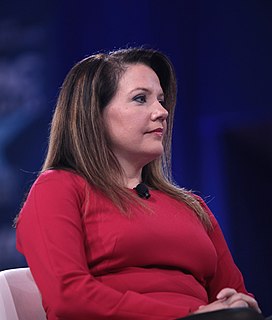A Quote by Annie Lowrey
The United States came into the coronavirus recession with a few structural advantages, including a highly diversified economy.
Quote Topics
Related Quotes
As the United States continues its slow but steady recovery from the depths of the financial crisis, nobody actually wants a massive austerity package to shock the economy back into recession, and so the odds have always been high that the game of budgetary chicken will stop short of disaster. Looming past the cliff, however, is a deep chasm that poses a much greater challenge -- the retooling of the country's economy, society, and government necessary for the United States to perform effectively in the twenty-first century.
Historically, the United States has had a wonderful energy policy. We're blessed with a diversity of resources. We have oil. We have gas. We have coal. We have nuclear. And renewables. And as a result, one of our biggest competitive advantages has been affordable energy. You need a strong economy and you need affordable energy to fuel that economy.

































